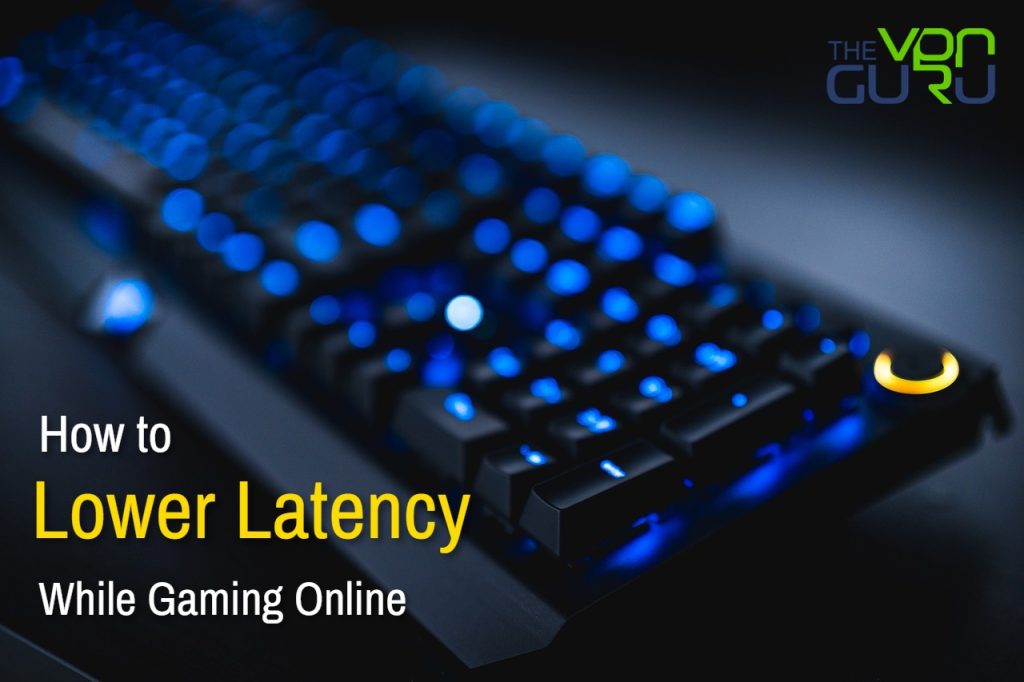How to Lower Your Latency While Gaming Online
Lag. When gaming, there’s little worse than it. It can be the make-or-break between a Victory Royale and a measly second place or, worse, it can make games feel totally unplayable for long periods of time.
So, how do you go about solving chronic lag? There are a bunch of ways to try and lower your latency while gaming. Let’s run through them to try and get your gaming experience back on track.

What is Latency?
While we all know what lag feels like when playing, what actually is it?
In short, game lag is caused when there’s a delay between the action of the player (your button inputs) and the reaction of the game server. This can have a variety of causes, but each cause will result in the game server receiving your information later than it should.
These latency issues can happen in a variety of locations: be it between your device and the connected Wi-Fi router, between your router and the service provider, or between the service provider and the game’s server itself. While you’re unlikely to be able to find which of these is the cause of your lag just by playing, you should be able to make a good guess from a little troubleshooting.
Steps Needed to Lower Latency
These are the troubleshooting steps you want to take:
Check Your Internet Speed
While most lag is caused by latency, not internet speed, most modern games will need a relatively strong and stable internet connection to play. Thus, the first step is to run a speed test.
As a rule of thumb, you want to be clocking in at least 15-20Mbps to be playing online.
It’s worth noting that even if your internet plan exceeds this, if multiple people in the household are utilizing the internet at the same time, the bandwidth can become strained resulting in a significantly lower internet speed which—you guessed it—means lag.
Check Your Latency
As we mentioned before, lag is most often caused by latency, not internet speed. So, it’s important to check this too. Fortunately, most speed checkers will also check your latency for you.
A good latency ping rate is below 150 milliseconds. But for the optimum gaming experience, you want to keep this number as low as possible. Anything below 50 milliseconds should provide you with a rock-solid gaming experience.
If your latency is above this, you’re probably wondering how to go about fixing it: well just keep reading.
Choose the Right Server
When gaming, we’ll often get the opportunity to choose a server. Most major games will have different servers for each continent, the most common provided being North America, Europe, Asia, and Oceania. Be sure to connect to a server that is geographically close to your location, if possible.
This will help reduce latency occurring between your internet provider and the server itself. After all, playing in New Zealand and streaming each and every button press to North America will take time—the internet is magical, but it’s not magic… at least not yet.
Move Closer to Your Router
If you’re playing on the right server and have a good internet speed but poor latency, chances are your device is struggling to communicate with your router. Try moving closer to it. This can reduce the overall time for the signal to be passed between the devices, allowing for lower latency.
Of course, you can also move your router but as this can be difficult, we recommend trying to move your computer closer first before rewiring your entire internet system.
Use Ethernet
If you’re still struggling, it could have something to do with hardware—such as the Wi-Fi chip in your computer or router simply not being fast enough. If possible, consider plugging your computer in via ethernet. This may sound old-school, but a good-old physical connection can still transfer data far faster than even a very strong internet connection.
Close Other Web-Based Programs
There is a small chance that latency is also being caused by your device being overwhelmed with internet processes. To avoid this, you can close other web-based applications while gaming, as this can help to ensure you are using your device’s maximum potential to keep your gaming latency low.
Restart Your Router and/or Computer
With all these troubleshooting tips tried, if you’re still struggling you may want to simply try restarting both your device and the router itself. After long periods of use, routers can become strained. Restarting them can help to refresh your internet connection and improve latency. Just make sure no one else is using the internet first!
Conclusion
With your lag gone, you’re free to game. So why not head on over to game camp to reward yourself with a new online experience by buying discounted CD keys? Whether you’re after Elden Ring, Grand Theft Auto V, or Destiny—you know you’ve earned it!




